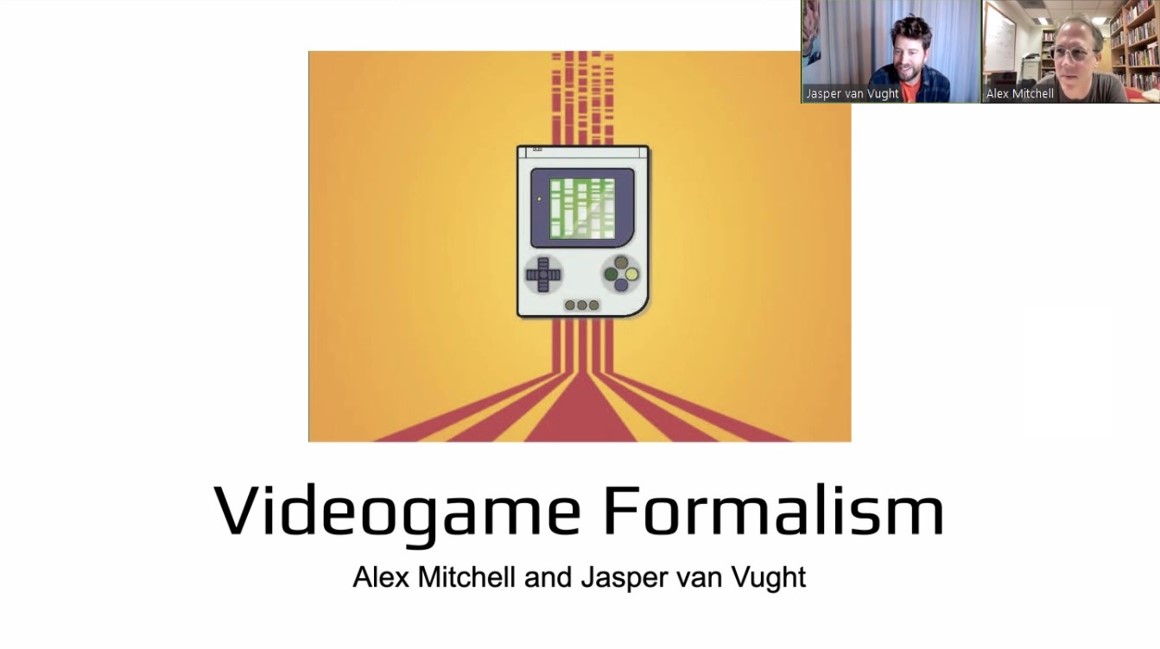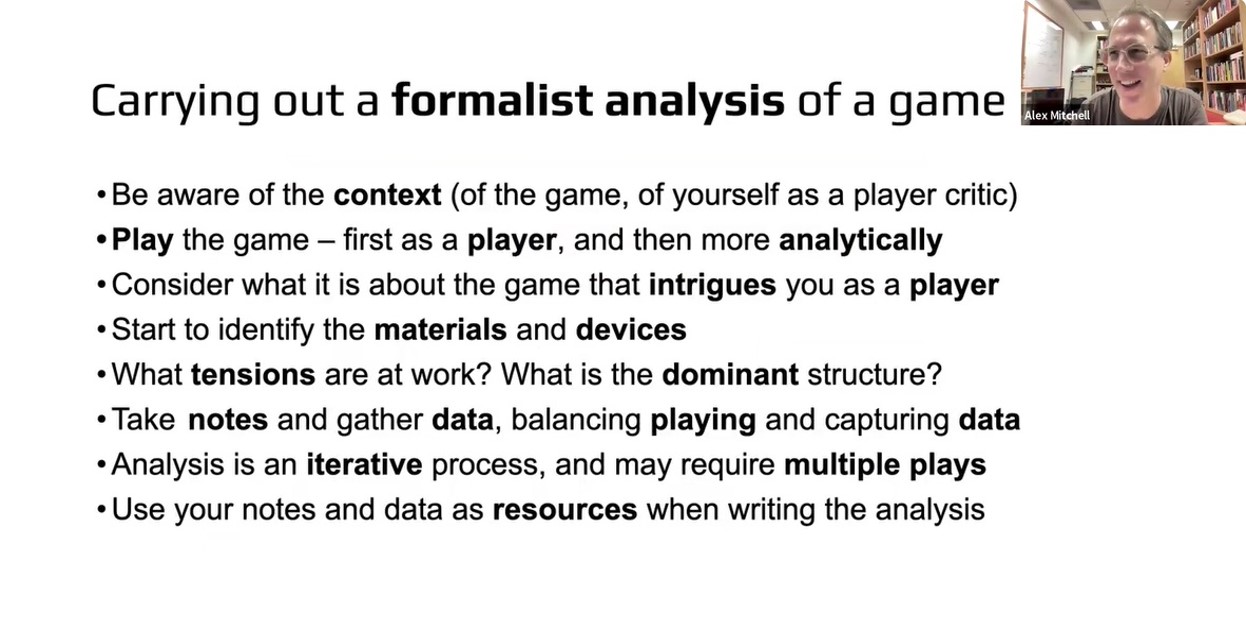Post Event Articles
Title : Approaching Videogame Analysis Through Formalism

22 Mar 2024
By Taara Kumar
Subtitle: Dr Alex Mitchell and Dr Jasper Van Vught breathe fresh air into the discussion of video games analysis by employing a formalist approach. They consider how form and aesthetics can impact videogames and explore their methodology of engaging in formalist analysis.
On the 22nd of March, the Department of Communications and New Media had the pleasure of receiving Drs Alex Mitchell and Jasper Van Vught for a talk, Videogame Formalism: On Form, Aesthetic Experience and Methodology.
Dr. Alex Mitchell is currently a Senior Lecturer in the Department of Communication and New Media at the National University of Singapore. Dr. Jasper Van Vught is currently an Assistant Professor in the Department of Media and Culture Studies at the Utrecht University.
In their talk, Dr Mitchell and Dr van Vught shared some insights from their book, including the importance of formalist analysis, despite the skepticism it may face within game studies. They went through their methodology of studying videogames as texts, starting from the player-critic's play experience, and emphasized the importance of identifying what is “dominant", the social, cultural, and technical context of games, and the "defamiliarisation" of game elements that contribute to the formalist analysis.
Starting with a brief look at the recent hit videogame Stray, the authors introduced the many ways in which one could analyse a videogame. Following the adventures of a cat, Stray breaks traditional expectations of videogames with a non-human main character, and a distinct lack of offensive fighting abilities. The authors then posed their central question: How would you perform formalist analysis of games? Dr van Vught then suggested one possible way of viewing videogames: as a text.
Their book fills in the gap in game studies, where there has been a lack of methodological consensus and standardisation on how to conduct game analysis.
Dr van Vught briefly examined the history of formalism in game studies, highlighting the fact that it tends to have a negative reputation due to a perceived focus on game structures and mechanics at the expense of player agency and context. He stressed the importance of viewing formalism as a framework for analysis rather than a subjective assessment of values and morals.
Employing Russian formalism, notably the concept of defamiliarisation, Dr van Vught then delved into how formalism can aid in unraveling the intricacies of gameplay interactions and strategies. Additionally, he underscored the significance of context in comprehending the defamiliarizing aspects within games. He explained that while an element may initially provoke a sense of unfamiliarity, it could gradually become routine and automatized with repeated exposure, only to potentially rekindle its defamiliarizing impact if videogame conventions and experiences shift again.
Dr MItchel then contextualised Dr van Vught’s explanations of defamiliarisation and formalism through the unconventional gameplay of the videogame Kentucky Route Zero. He went through the methodology of carrying out a formalist analysis of this game by identifying the steps that he undertook:

- Be aware of the context of the game
- Play the game as a player, then more analytically
- Consider what it is that intrigues you as a player
- Start identifying the materials and devices used, such as composition, aesthetic, music, etc.
- Consider what tensions are at work and what the dominant structure might be. How do the materials and devices work together?
- Take notes and gather data, keeping in mind to balance play and the capturing of data
- Remember that analysis is an iterative process that may require multiple playthroughs
- Refer to your notes and data as resources when writing your analysis
As such, he pointed out the game's distinctive visual style, innovative camera usage, and unconventional approach to diegetic and non-diegetic music, as well as its departure from traditional player control and expected experiences as more acts were added to the series.
Dr Mitchell and Dr van Vught, once again drawing inspiration from Russian formalism as applied in film studies, suggested it would be interesting to explore its adaptability to diverse game formats such as digital, board, and tabletop roleplaying games. The talk delved into the significance of environmental context and player experience in game analysis, alongside the evolution of formalist approaches over time. They also discussed the suitability of formalism for abstract games and the impact of external media on shaping game formalism.
The authors also suggested other applications of the formalist lens with respect to non-digital games such a board games, and online multiplayer games where more players are added to the mix. They encouraged the audience to explore whether formalism could be used as the foundation for other types of analyses, even going as far to ask whether it could be used as a basis for design of games.
The discussion concluded with a Q&A segment, during which attendees probed the feasibility of applying the formalist lens of analysis across different game genres and considered their limitations and other future practical uses.
Their book, published by Amsterdam University Press, can be downloaded on open access here: https://www.aup.nl/en/book/9789048554232/videogame-formalism.

